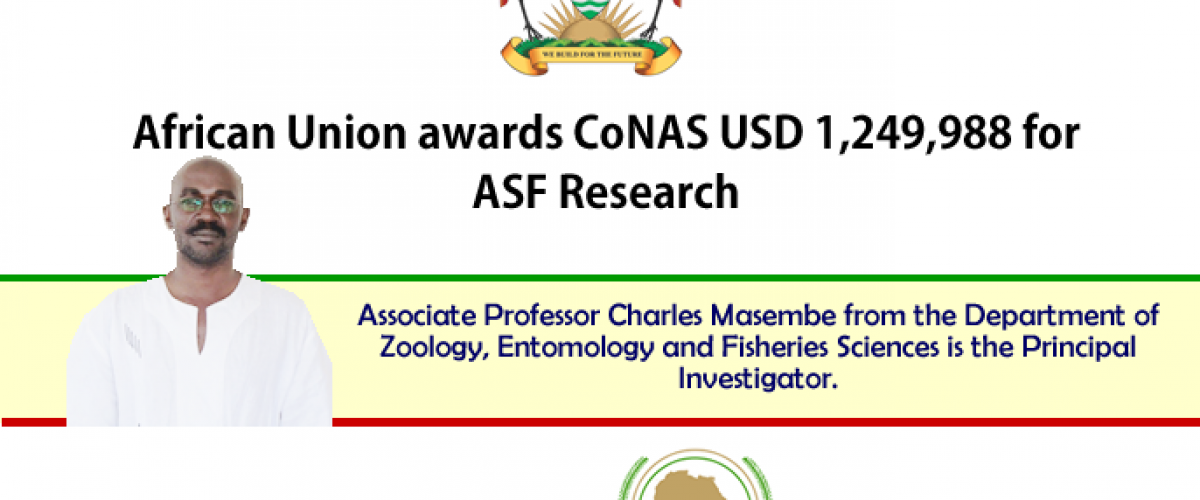The African Union has awarded a research grant of USD 1,249,988 to a consortium of scientists led by the College of Natural Sciences (CoNAS) to implement a research project titled, ‘Developing innovative and sustainable approaches to prevent the spread of African Swine Fever (ASF) in Africa (ASF-RESIST)’. Associate Professor Charles Masembe from the Department of Zoology, Entomology and Fisheries Sciences is the Principal Investigator. The implementation period is 3 years in Uganda, Nigeria, and United Kingdom.
The project objectives include: 1. To determine the phenotypic and genotypic features of pigs that survive ASF outbreaks; 2. To develop a community-based participatory biosecurity approach to control ASF outbreaks; 3. To evaluate ASF rapid diagnostics for use in resource constrained settings; and 4. To determine the full genome characteristics of circulating ASFV strains.
CoNAS will work in partnership with the MRC – University of Glasgow, Centre for Virus Research – Scotland, UK; the National Veterinary Research Institute, Nigeria; BecA-ILRI Hub – Kenya; National Veterinary Institute – Sweden and the Regional Universities Forum for Capacity Building in Agriculture (RUFORUM).
ASF is a highly contagious hemorrhagic disease affecting pigs (domestic and wild). This disease is a major constraint to pig production and the pork industry in many countries in sub-Saharan Africa, periodically killing 90–100% of affected animals; and has neither treatment nor vaccine. ASF is characterized by high fever, loss of appetite, haemorrhages in the skin and internal organs, and causing death in 2-10 days on average. This is a real threat to an industry that has become very attractive as a means of food, income and employment, since pigs are considered “walking banks” in the local communities. Smallholder pig keeping is a good opportunity for the predominantly rural African population to raise money quickly; given that pigs grow to maturity in a short time (8-12 months), they are raised successfully on food waste and other inexpensive fodder and can be sold with relative ease, including at markets in urban areas.

